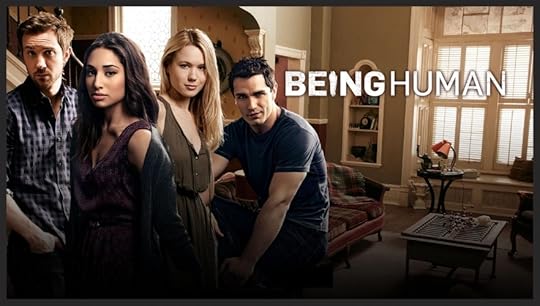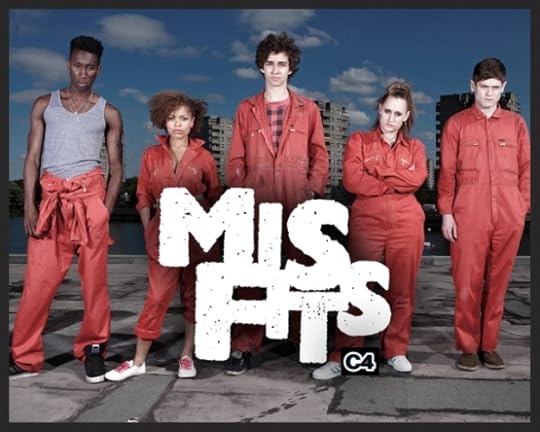The Crashers: Where Books Come From

All books come from somewhere. The Crashers, my book about superheroes, came out of a lifelong fascination with cape book mythology. It also came out of a love for genre television, and my appreciation for visual storytelling in film as well as comics. So this is a post about where The Crashers came from, and why. Give credit where credit's due, after all.

Being Human (US)
One of my favorite shows, probably ever. While I don't dislike the original Being Human (UK), the cast and writing on Syfy's North American adaptation stuck with me. The idea of using genre conventions to tell interesting personal, character-driven stories stuck with me, too. Vampirism as a stand-in for the costs of addiction; lycanthropy as a means to explore mental illness; using death, undeath, and the varying shades of existence in between to talk about grief, isolation, and domestic abuse.
All of this really informed the idea of how people cope with their inner demons -- be they monstrous or common place -- and build a support system out of that. Everyone on Being Human was struggling with baggage and trauma in one way or another, and they leaned on those around them to get through it. Even in the face of horror.

Misfits
Misfits was a show that really resonated with me on a lot of levels. It's tone, visual style, and irreverent --at times flat-out aggressive -- refusal to conform to contemporary audience expectation of the superhero/superhuman genre was so refreshing. The show divorced the idea of superpowers from superheroes, by giving them to the kinds of disadvantaged, maladjusted, and sometimes flat-out self-destructive people we don't often see in conventional cape stories. What would a bunch of people in their late teens/early 20s actually do with superpowers? Nothing heroic, probably.
The show's deft balance of superpowered absurdity -- complete with time travel plots and the occasional costume -- with heartbreaking pathos made it memorable. They may have had powers, but they were still normal, fallible people. They still got their hearts broken. They still bled. They still died. There was never an uplifting moral or a hopeful accomplishment at the end of the day -- just more of the same. But that's life.

Heroes
Oh, Heroes. The show that could've been great, and then really, really wasn't. Between 2006 and 2008, my entire fandom existence was dedicated to this show, even though I am just a little embarrassed to admit it in certain company. I don't need to talk about the uneven writing, the abysmal handling of female characters, and a reckless exuberance for killing off characters of color. We were all there.
All of that said, I'd be lying if I didn't feel a small twinge of nostalgia whenever I think of this show. Because there was a wealth of good ideas and interesting characters, that were unfortunately rarely capitalized on in compelling or lasting ways. If nothing else, it showed that there was an audience for non-Marvel, non-DC superhero fiction in mainstream popular culture. If 20 year old me hadn't been watching Heroes, The Crashers might not have happened.



